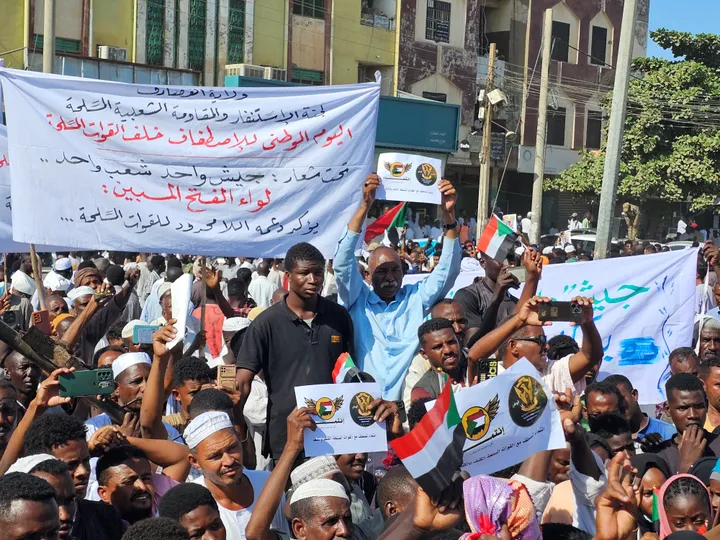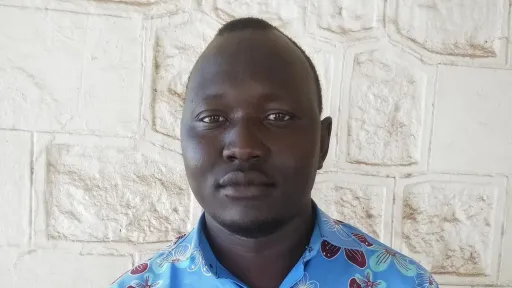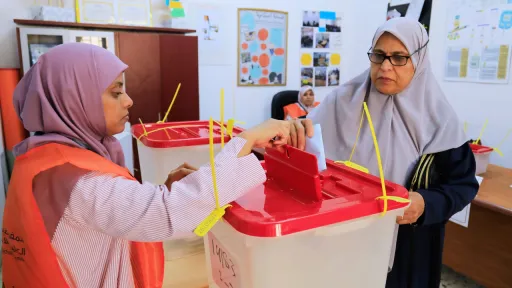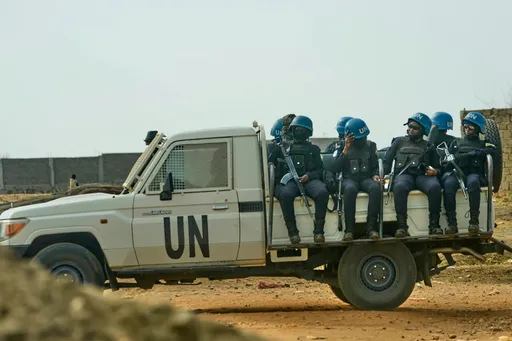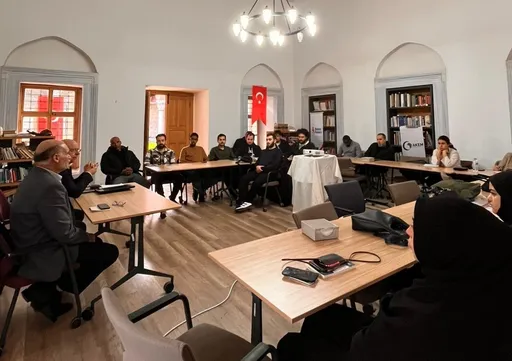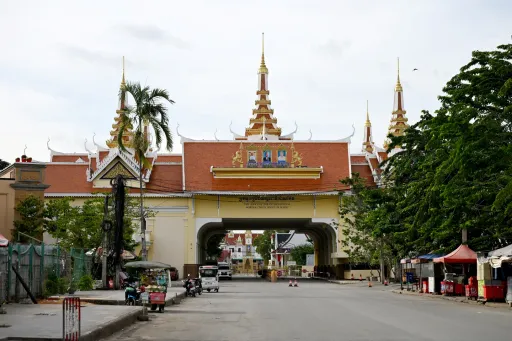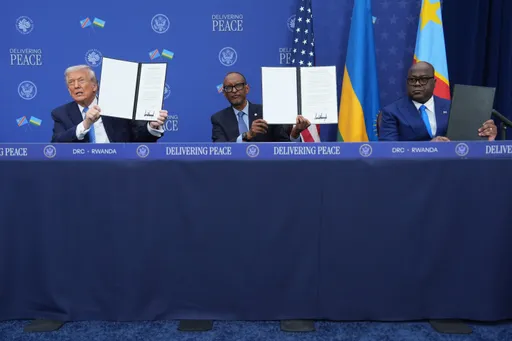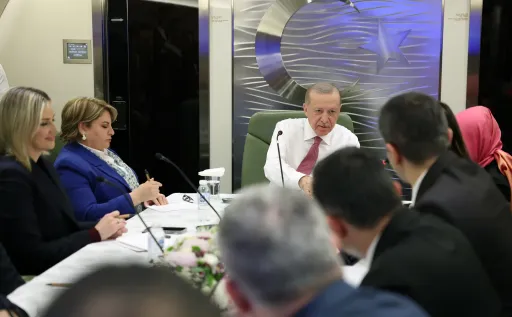By Ian Proud
Since the collapse of the Assad regime, there has been a diplomatic rush to recognise Syria’s new leadership.
Türkiye's embassy in Damascus has reopened after 12 years, while the European Union has reopened its representative office in Damascus. American, British and other European diplomats have visited, looking to reestablish embassies.
An awkward charm offensive is underway in which big states, which had themselves sent Syria into economic ruin over the past fourteen years, size up its caretaker leaders and decide how much trust to invest.
But if Syria is to reemerge from civil war and economic collapse, regional powers like Türkiye will likely play a more important role in the long term.
Ahmed al Sharaa, rebranded with his birth name, has had a modern haircut and donned a Western suit to make a quantum leap from an al Qaeda-affiliated fighter to a global statesman and putative head of the first post-Assad government in Damascus.
The US has dropped the $10m bounty it had placed on the head of Abu Mohammed al Jolani – the nom de guerre of the Hayat Tahrir al Sham (HTS) leader.
This doesn’t necessarily buck a global trend over history.
Nelson Mandela, one of the most iconic global statesmen of the twentieth century, was on a US terror watch list until 2008.
Even Mahatma Gandhi, who championed non-violent civil disobedience in India, was once labelled a terrorist in a British Parliamentary paper in 1932.
It is far too early to tell what sort of statesman al Sharaa will emerge as, if he does, but Western leaders are giving him the benefit of the doubt for now. And he has a huge task on his hands.
Future tense?
Syria remains a broken and divided country with a significant PKK/YPG terror presence in the northeast and Daesh showing early signs of a resurgence.
Israel has seized more land in the Golan Heights since Assad’s downfall, there is a residual US military presence in the east, with Russian air and naval bases in the west remaining in place initially.
The UN has called on the new leaders of Syria to hold free and fair elections, which will be a test case of how far foreign governments commit to supporting the new administration over the longer term.
Clearly, Western leaders have divergent interests in Syria, and whoever leads that country must juggle competing demands.
For the US, the core benefit of overthrowing Assad was to end the role of Syria as a transit route for military and other support from Iran to groups like Hezbollah and Hamas.
The October 7, 2023, attack by Hamas has precipitated a genocidal campaign by Israel in Gaza and attacks on regional countries. Israeli actions pose a real problem for US foreign policy in the Middle East.
Put simply, while the Americans will always support Israeli national security – including under President-elect Donald Trump – that “ironclad” backing has tested traditional alliances in the region over the past year, notably with Türkiye and Saudi Arabia.
Indeed, the gradual Saudi rapprochement with Iran, brokered by China, will only be accelerated by US-backed Israeli impunity.
The US will hope that a change of power in Syria will give Israel the political space to step back from its military campaign. I am sceptical that it will be so straightforward, while Netanyahu is in charge.
For the EU, the possible upshot of overthrowing Assad will be seeing the return of one-and-a-half-million Syrian refugees who have settled in European countries over the past decade.
Within hours of Assad’s ouster, European governments announced a pause in processing asylum claims from Syrian refugees.
This was a surprise move, given the untested nature of the new administration in Damascus, but a clear sign that the European decision-makers are placing their bets on Syrian refugees returning to their homeland.
The large-scale migration into Europe has stoked far-right and hard-left political movements that are upending the old order and causing cracks in the European project itself.
Politicians in Austria, Germany and France have already called for the orderly repatriation of Syrian migrants.
The irony here is that Europe is facing acute labour shortages in healthcare, transportation, construction and leisure, which refugees may help to fill.
Why Türkiye matters
During her visit to Ankara on December 17, European Commission President Ursula von Der Leyen announced a further $1 billion in funding to Türkiye to support refugees. It was a timely reminder that Türkiye has received by far the largest number of refugees from Syria, totalling around 3.5 million.
With the US, the EU and the UK focused on how a stable Syria will reduce risk to them, for Türkiye, this transition in power offers huge scope to support Syria’s reemergence in a way that is beneficial for regional prosperity and security.
A gradual return of Syrian refugees to their homeland will help to remove the enormous burden on Türkiye over the past decade and more.
However, it is far from clear that Syrians will return in huge numbers only because Assad has gone. They will also consider whether they can secure the same economic security and support they achieved in Europe and Türkiye.
Because Syria’s economy has been in meltdown for fourteen years on the back of US and European sanctions imposed since 2011. The sanctions amounted to an almost complete economic blockade, which has had a devastating effect.
From a yearly GDP of $252bn dollars in 2010, Syria’s economy generates less than $10bn per year now.
According to the World Bank, having been at a negligible level in 2009, extreme poverty hit 27 percent in 2022, while 69 percent of the population was considered poor. Industrial and agricultural output has collapsed, leaving the country dependent on imports.
Since Assad’s ouster, European and US leaders have made tentative noises about sanctions relief under the new regime.
Whoever forms a longer-term government in Damascus will want to ensure they can rebuild the economy to safeguard domestic stability. Absolute poverty and inequality in modern Syria will only create a fertile breeding ground for radical groups like Daesh.
It would be difficult for Syria’s new leadership to create the right conditions for refugees to return while effectively cut off from the global economy.
This is a much more salient issue for Europe than it is for the US, which has received few Syrian refugees.
Europe’s leaders should, therefore, work closely with the incoming Trump administration to ensure any approach to sanctions relief is closely aligned and to give Syria’s leaders the greatest chance of kickstarting an economic recovery.
As Syria slowly emerges from an era of punishing sanctions, that country should focus its efforts on rebuilding its economy to recreate a homeland that the Syrian people want to return to.
Instinctively, Syria’s new generation of leaders are not likely to see the Americans or Europeans as their closest allies in this endeavour, given their role in reducing their country to poverty and causing economic suffering to millions, beyond the brutalities of Assad himself.
Given its proximity, its position as a key G20 nation with a vibrant export and investment-led economy, and its supportive stance during the civil war, Türkiye seems more likely to be the regional power that Syria may turn to for support during this important transition.
The author, Ian Proud, is a former British diplomat and author of A Misfit in Moscow: How British Diplomacy in Russia Failed.
Disclaimer: The views expressed by the author do not necessarily reflect the opinions, viewpoints and editorial policies of TRT Afrika.
➤ Click here to follow our WhatsApp channel for more stories.

